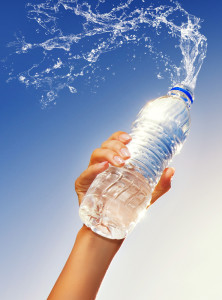I'm Kristen!
Struggling With Under Fueling? 3 Ways to Kick-Start Your Journey to Recovery As a Female Athlete
I'm an athlete and sports dietitian with over 15 years of experience in working with athletes.
Read more about me!
categories
freebies
3 High Protein Lunch Recipes You Can Meal Prep
grab some
Lorem ipsum dolor sit amet, consectetur adipiscing elit
Active Lifestyle, Athlete Nutrition, Athlete Training, Fitness, High School Athletes, Hydration, Nutrition, Post Workout, Runners, Triathletes, Wellness
blog posts
the favorite
Struggling With Meal Prepping? 5 Tips to Prep Your Meals as a Busy Female Athlete
Lorem ipsum dolor sit amet, consectetur adipiscing elit
Lorem ipsum dolor sit amet, consectetur adipiscing elit
Summertime Hydration for Athletes
June 30, 2015
Active Lifestyle, Athlete Nutrition, Athlete Training, Fitness, High School Athletes, Hydration, Nutrition, Post Workout, Runners, Triathletes, Wellness
Proper hydration in the summertime is a must for athletes!
Summer weather is officially here in South Carolina! By summer weather, I mean humidity. Gone are the days of being able to walk outside and not worry about sweating through your shirt. If you are an athlete, these conditions can be extremely dangerous.
Here, I have put together some tips on how to stay hydrated during your workout so that your body can keep running at top notch.
In order to understand hydration, we have to understand dehydration.
What exactly is dehydration?
 Dehydration occurs when you have fluid loss that is greater than 2% of your total body weight, which causes a 20% decrease in overall performance.
Dehydration occurs when you have fluid loss that is greater than 2% of your total body weight, which causes a 20% decrease in overall performance.
When dehydration occurs, body temperature increases while blood volume and the production of sweat decreases. To prevent overheating, the body works harder to try to produce sweat. When the body has to work harder to sweat, fluid is taken from the bloodstream, leaving less fluid to help deliver blood (and therefore oxygen) to the lungs, muscles or other vital organs.
According to Gatorade.com, “Significant drops in potassium and sodium, the two main electrolytes lost in sweat, can delay brain to muscle communication, slowing down reaction times and decreasing muscle performance.”
Hyponatremia is the name for low levels of sodium in the blood. This occurs when large amounts of fluid and sodium are lost, which happens a lot when we sweat. Hyponatremia can lead to a coma or even be fatal if the body is not appropriately taken care of. Dehydration and electrolyte imbalance can lead to poor muscle function, muscle cramps, dizziness or fatigue. These are just a few of the reasons why proper hydration and electrolyte balance are so important to athletes!
Whether you are a recreational gym user or a team player, these steps can ensure you get the best out of your workout:
- Weigh yourself before and after every workout. This allows you to take note of how much fluid you are losing. Gatorade.com suggests drinking 16 fluid ounces for every 1 pound you lose during your workout.
- Calculate your sweat loss during exercise (how-to on this below).
- Drink 16 fluid ounces of water 2 or 3 hours before your workout.
- Drink 8 fluid ounces of water for every 15 minutes of exercise.
- Sports drinks are a good option for athletes doing 60-90 minutes of a high intensity workout.
- Sports drinks with balanced carbohydrate and liquid ratio (like Gatorade or Powerade), provide muscles with small amounts of fuel.
- For athletes trying to lose weight or doing low intensity workouts, Nuun tablets can be placed in water, which have no added sugar, but are packed with electrolytes.
- Remember that time-outs and game breaks are the perfect time to hydrate.
- Stay away from sugary drinks like soda, they do not provide a balanced carb-to-liquid ratio and take longer for your body to digest.
Calculating your sweat rate:
To calculate your sweat rate, take the total number of weight loss and convert it to ounces (1lb=16oz). Subtract the number of ounces you drank during your exercise. Divide that number by the total hours of the workout. For example:
- 130lb (Pre-workout) – 128lb (Post-workout) = 2lbs = 32 ounces.
- 32 ounces – 20 ounces during workout = 12 ounces.
- 12 ounces ÷ 2 hours of exercise = 6oz. sweat per hour.
Need help for a solid plan that supports you in your sport?
You definitely need to check out everything that’s included in The Sustainable Sports Nutrition Academy!
Contact me any time to schedule a free 15-minute consultation, so we can discuss your particular situation and goals. Virtual consultations available in the comfort of your home!